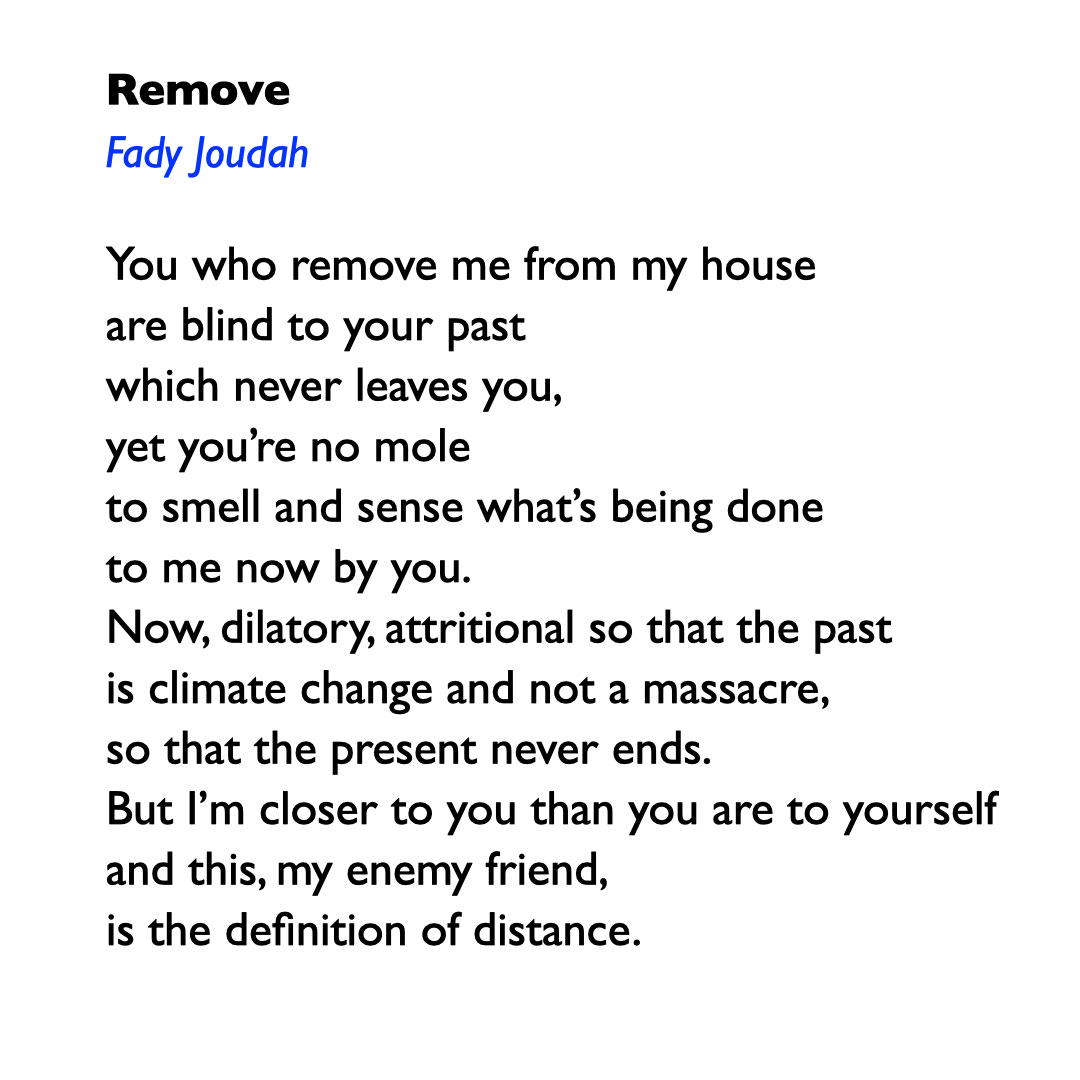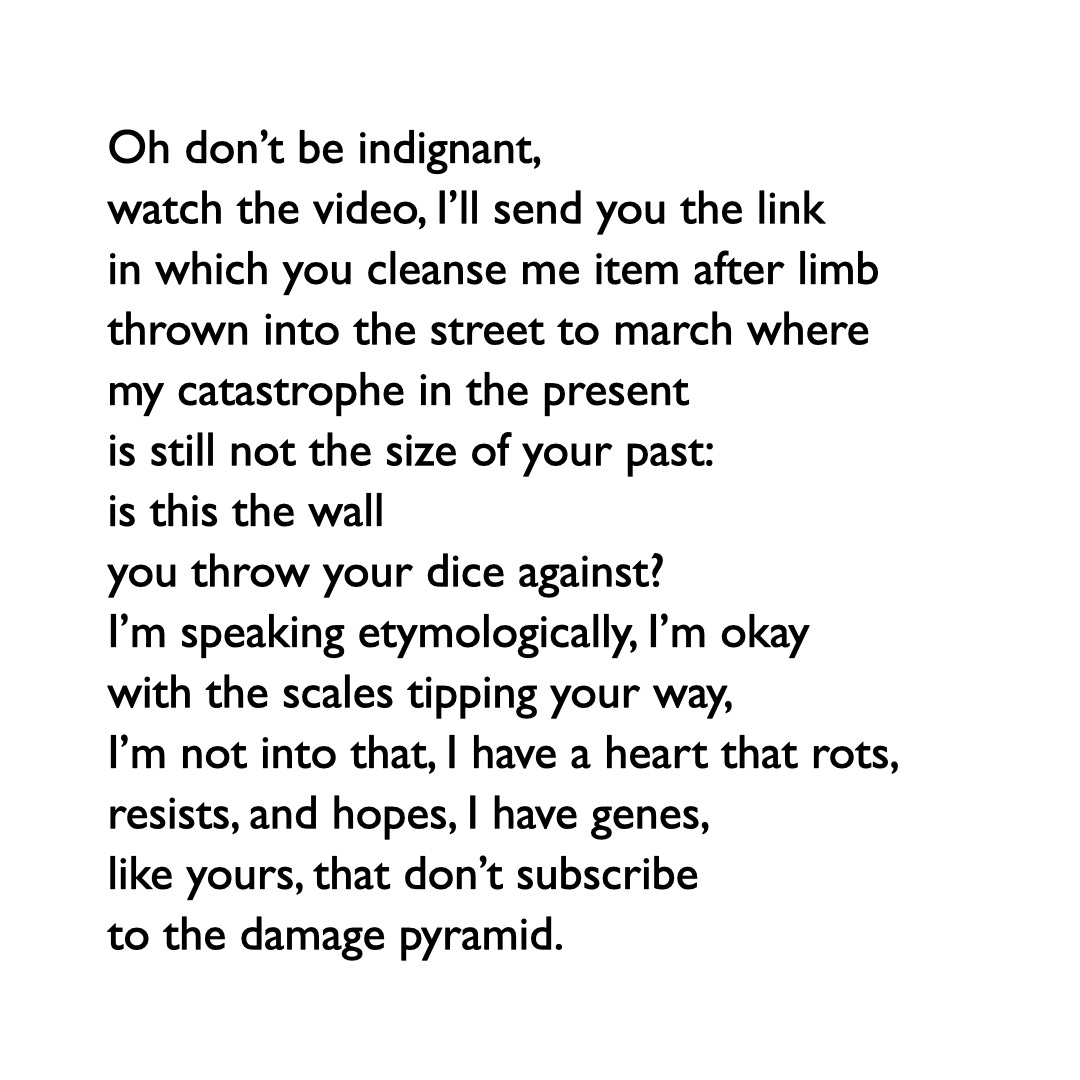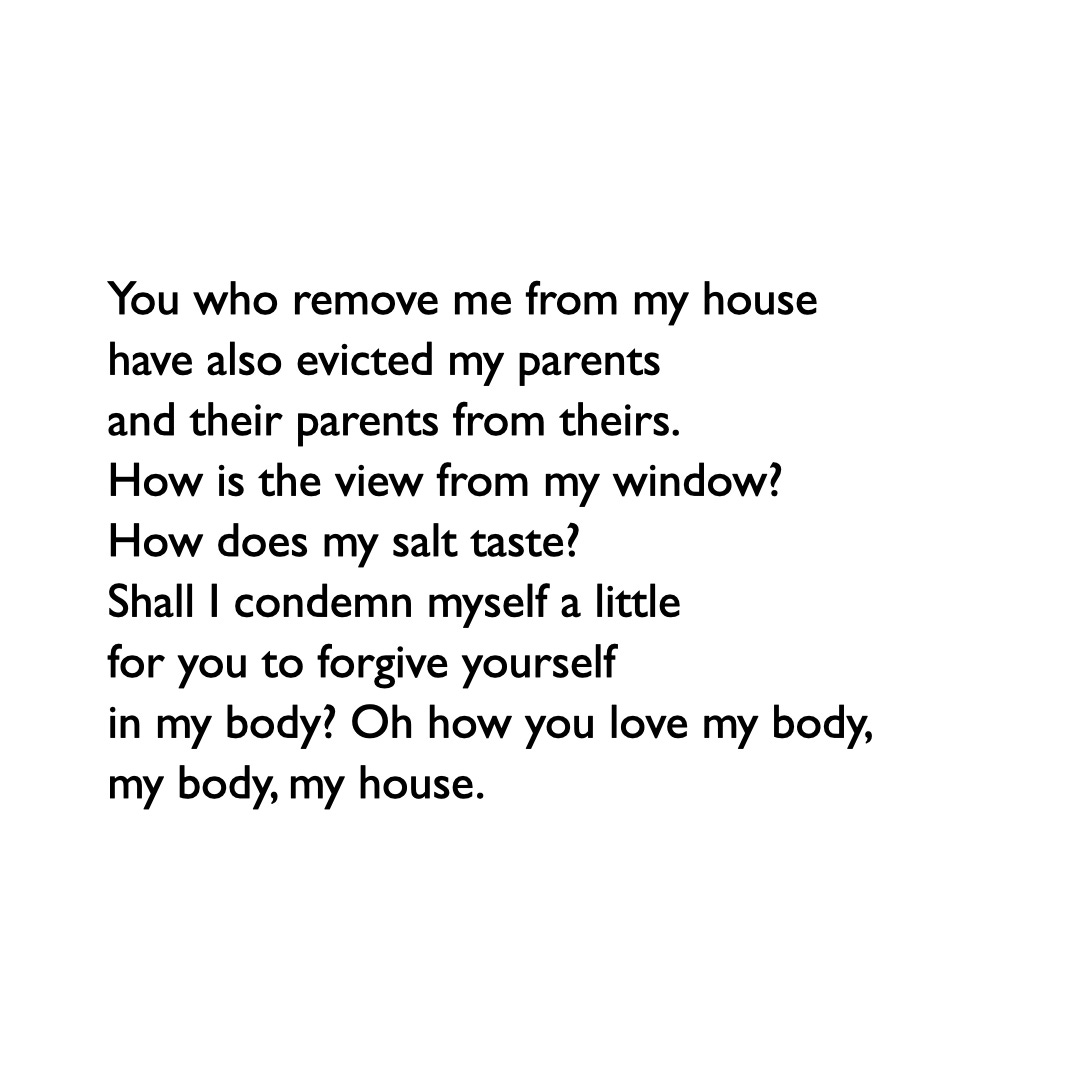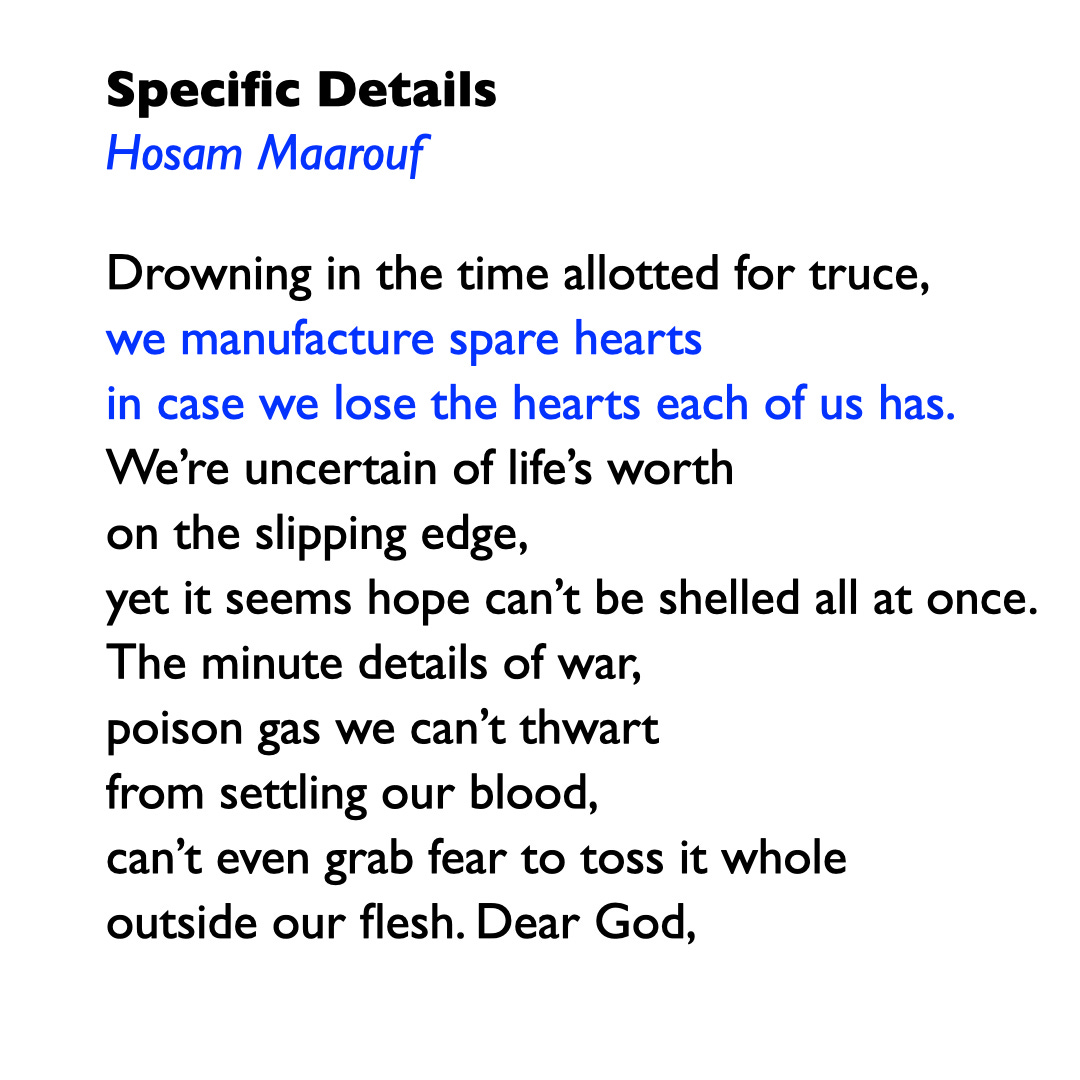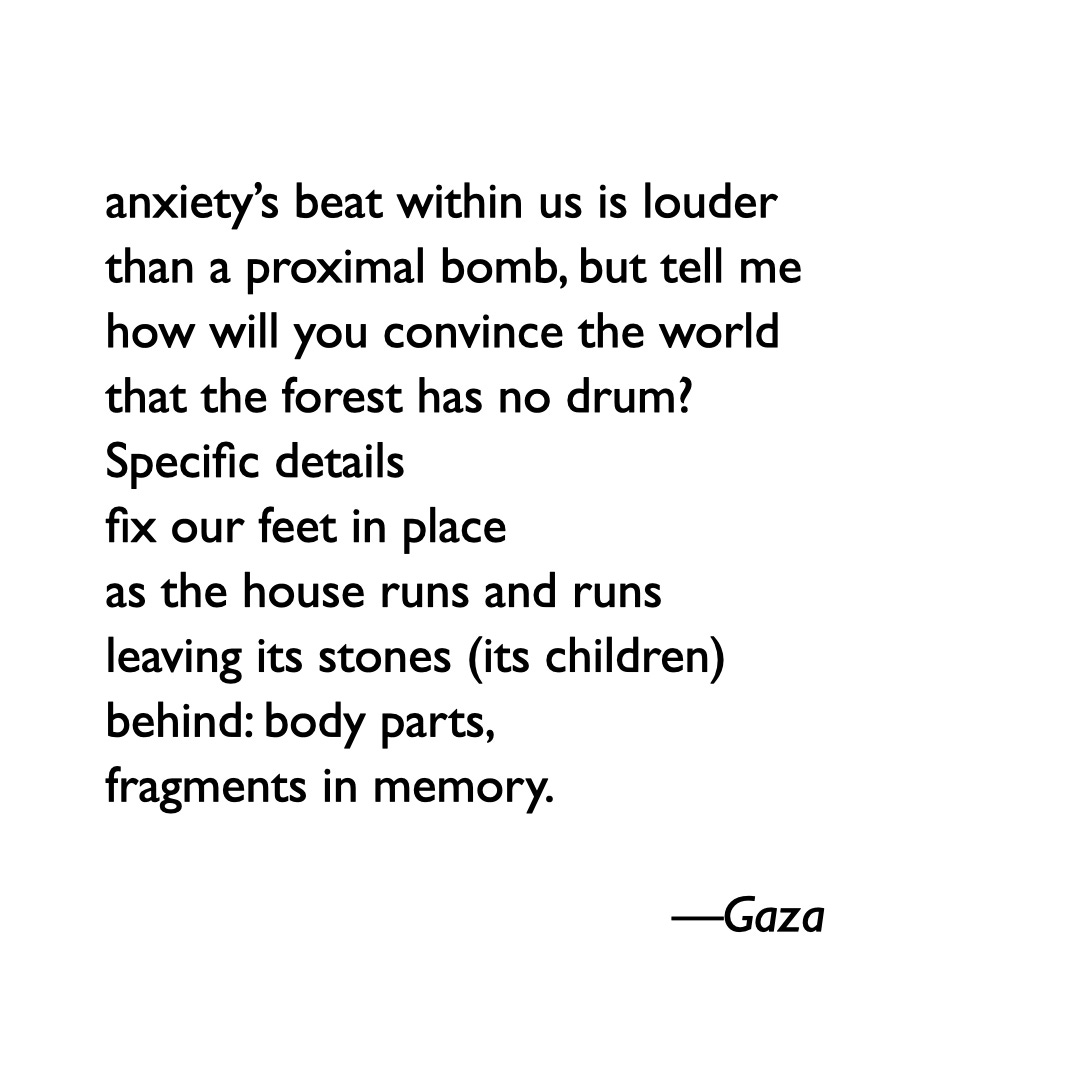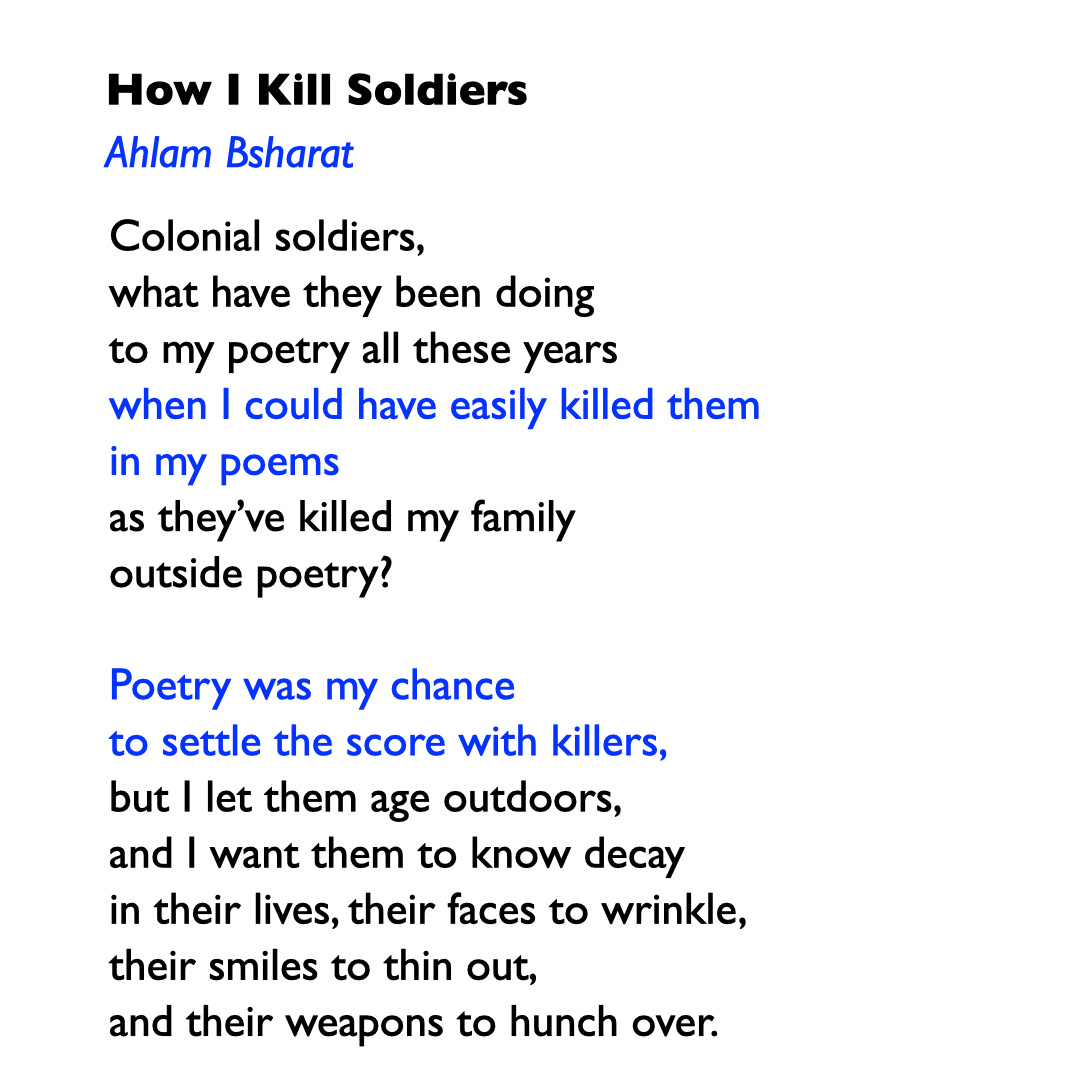3 Palestinian Poems (and an essay) - "Remove", "Specific Details", & "How I Kill Soldiers"
Fady Joudah, Hosam Maarouf, Ahlam Bsharat
The Voyage has been well underway for a while now, and at times I feel like I’m on board Ted Kaczynski’s Ship of Fools. However, we must motor onwards. always. Let us continue then, in this strain of defiance, with the blasted red eyes of the rebels and the despairing- Berger talks about the Seven Levels of Despair of Palestinians in Gaza caught in the ambit of the Israeli surveillance and war machine. I quote from the essay which finds its place in a fascinating collection of “Dispatches on Survival and Resistance”, Hold Everything Dear:
“There are seven levels of despair -- one for each day of the week -- which lead, for some of the more courageous, to the revelation that to offer one's life in contesting the forces which have pushed the world to where it is, is the only way of invoking an all, which is larger than that of the despair.”
I urge you to read this essay on his experience and interaction with the people and space (both real and philosophical) of Palestine, along with the others in this collection. It is, in my opinion, one of his finest works, and a true marriage of the storyteller, art critic, poet, artist and activist in Berger.
I share with you today a poem by a Palestinian poet, translator, cultural theorist and critic, written and shared during this latest “round of Palestinian uprising against Israeli apartheid and its colonial war machine”, around May 2021. It has been shared on Twitter, however, along with the story of its deliberate rejection. I’m speaking of Fady Joudah’s Remove.
The story of the poem provides context for the poem itself. It is encapsulated in an essay about the politics of suppression, censorship and identity, that looks critically and contextually at the (non)publication of this poem by mainstream American publications. He interrogates discourses about language - specifically the ‘rendering’ of Palestine in English and in Arab, identity, nationalism, the subtle (and sometimes direct) imperialism of the Western gaze, as well as Jews in America and elsewhere, and the notion of the victim’s victim (and victim as oppressor). It is an enlightening piece of writing that balances Joudah’s impassioned drive to stand testimony during this relentless Intifada, with his radical and rigorous critique of its reporting, and exploration in the West. He invokes several other important voices of Palestinian resistance, while also drawing out the “damage pyramid”. He references Darwish, of course, and many other thinkers and revolutionaries who have spoken in insightful, and passionate timbre about the Palestinian reality and the Nakbah. Among other poets, he cites the Gazan poet Hosam Maarouf - from Specific Details, as well as Ahlam Bsharat, a poet who lives in Ramallah - from How I Kill Soldiers. I’m sharing both these poems as well. He talks of how sometimes poetry in English, about Palestine, can often be reduced to ethnography, and he also talks of voices that rise above this. It is a thought provoking essay that sets out his own positionality vis-a-vis the reality of intense, ceaseless occupation in Gaza and other territories grasped by the rapidly inching fingers of the Israeli settlers. He goes on to explore the poetry of resistance and ‘Bergeresque’ despair, and the larger ecosystem.
“Like so many Palestinian writers, Ahlam Bsharat is writing to herself in the future, not just to herself now. Her now is responding to letters that have reached her from a human past. Think of the compassionate yet resolute language of many survivors of great suffering in history, their dignified reconciliation with their oppressors. And decades from now, those of us who will reread her words will think again. But my choice of excerpt does disservice to her work. To reach English, Palestine passes through a corrupting prism, and is often received as ethnography. For some readers this positionality mobilizes solidarity. For others it confines Palestinians to the framework of benevolence toward the pulverized. We watch, as we’ve been watching for decades, Palestinian lives and culture being liquidated and choked, in Israel, Gaza, and the West Bank, then argue about the ethics of our tolerance, certain that we can control the nuclear button that might activate Palestinian annihilation. “It happened gradually,” some genocide survivors have taught us, “before it happened all at once.” And yet, if it happens, we’ll have what to remember Palestinians by.”
I share with you Joudah’s essay, published in the Los Angeles Review of Books online, once again for reference - My Palestinian Poem that “The New Yorker” Wouldn’t Publish.
“How is the view from my window?
How does my salt taste?
Shall I condemn myself a little
for you to forgive yourself
in my body? Oh how you love my body,
my body, my house.”
- Remove, Fady Joudah.



